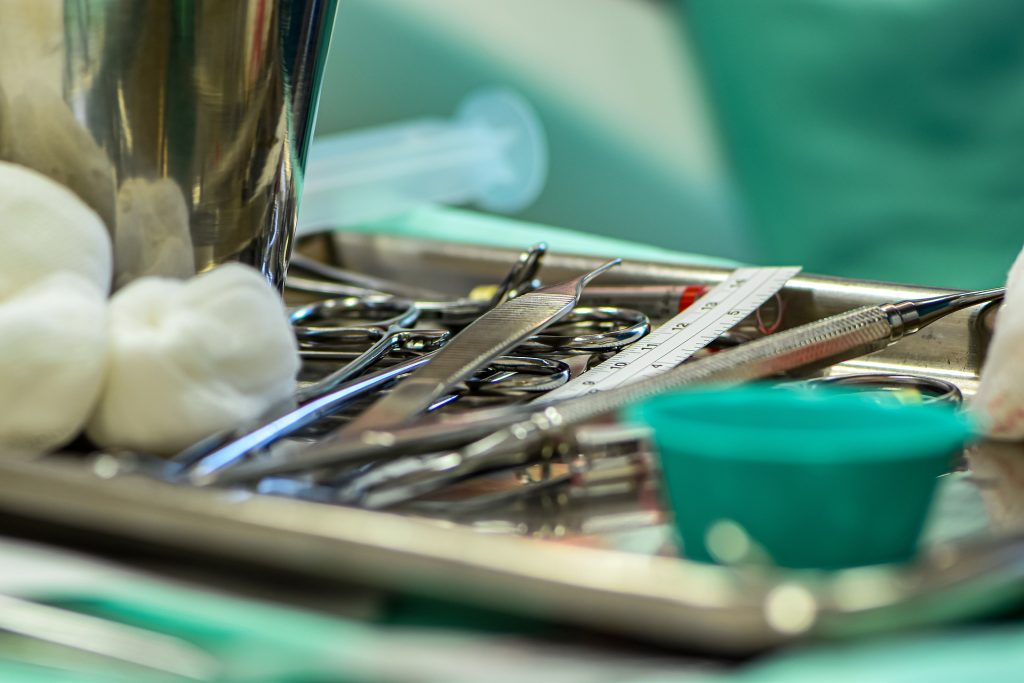While the medical field steadily climbs to become one of the quickest growing industries in the country, more professionals are needed by the day. Few positions in the medical field are more revered and respected than that of the Surgical Technologist. Holding a surgical technician credential creates many career opportunities.
Assisting in setup
Having a safe and sanitary environment to work in needs to be a consistent factor when performing life saving surgery. A surgical technologist’s responsibilities involve the preparing of the operating room, instruments, equipment, medication, and supplies that will be needed, as well as setting up and sterilizing the space before a procedure can take place. This is one of the most important traits that a technician brings to the table and ensures that surgeons can have a safe, sterile environment.
At Eastwick, students receive surgical technology training through a variety of methods, including classroom lecture, practice in a mock surgical lab at the college, and in actual clinical experience at local hospital operating rooms. Surgical Technologists function as integral members of the surgical team working closely with surgeons, assisting with the procedure, and ensuring that optimal care is provided to the patient.
Surgical technologists will also find themselves taking part in the surgery itself. On top of assisting the surgeon, all operating room care is ultimately their responsibility. Besides assisting the team during or after the operation, technicians may find themselves assisting in dressing wounds, monitoring patients, preparing tools and supplies, and keeping track of supply levels and lighting.
Being on top of their game
Surgical Technologists must possess a manual dexterity, a conscientious work ethic, critical thinking, interpersonal skills, communication skills, mobility, motor skills, hearing, visual, tactile, cognitive abilities and be emotionally stable to handle the demands of the operating room environment. They need to respond quickly and must be familiar with all procedures to have all that is needed for the surgeons without having to be told. They are expected to keep abreast of new developments in the field. A Surgical Technologist is the surgical team’s expert in aseptic technique and is constantly monitoring any breaks in that technique.
Credentials
Our Surgical Technologist program will prepare you with the knowledge and skills needed to assist during a surgical procedure. Our facility includes a state-of-the-art operating room laboratory. The program is designed to provide the student with the knowledge, competencies, and all skills to become part of the surgical team. An Eastwick College student can become a Certified Surgical Technologist (CST) in as little as 18-months with our CAAHEP accredited Associate Degree in Surgical Technology Program on our Ramsey, NJ campus.
Surgical Technologists graduate from accredited programs through the Accreditation Review Council on Surgical Technology and Surgical Assisting (ARC/STSA), a collaboration between the Association of Surgical Technologist (AST) and the American College of Surgeons (ACS), by the Commission on Accreditation of Allied Health Education Programs (CAAHEP). With additional training the practicing CST may enroll in a Certified First Assisting program and become a CFA.
Certification is conferred by the National Board of Surgical Technology and Surgical Assisting (NBSTSA). The certification as a Certified Surgical Technologist (CST) is observed following satisfactory performance on the certification exam following completion of an accredited academic program. They maintain their certification by earning 30 hours of continuing education in a two-year period.

